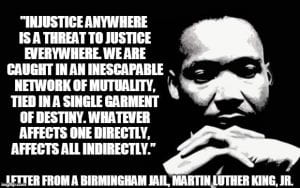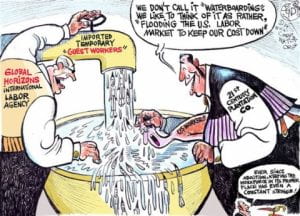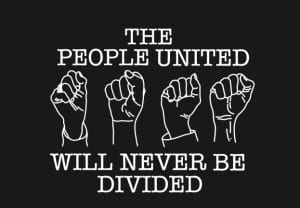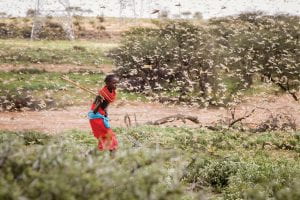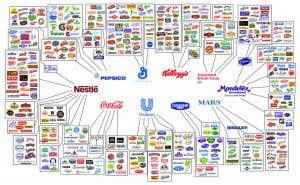“Injustice anywhere is a threat to justice everywhere,” those are the now iconic words from the deeply moving letter from Birmingham jail written by MLK Jr. in 1963.
While those words are powerful by themselves, just as powerful is the sentence which follows it: “We are caught in an inescapable network of mutuality, tied in a single garment of destiny.” While MLK Jr. was specifically talking about racism in America and the necessity of all people to stand up for injustice wherever they see it, I think that the idea presented resonates at a much deeper level. As we have learned through systems thinking throughout this quarter, we are all connected in many more ways than we think.
We are connected to the cacao farmers in West Africa who grow the beans that become our chocolate but who can’t afford the finished product,
We are connected to the meat packers in the Midwest who are dying of Covid-19 because of a lack of adequate protection,
We are connected to the communities who can’t drink their water because they live downstream from under-regulated dairy CAFO’s in our very own Washington state.
Global food system, Criminal Justice System, Contaminated Water Systems, all just different names for the same oppressive system fueled by the colonial legacy of institutionalized racism. We may have abolished slavery 155 years ago, but most of our food is still picked, packed, and shipped by black and brown hands. We are all part of a system which consumes marginalized bodies, and which leaves those who benefit from it confused, guilty, and angry; A system which has injustice as its very core.
So, what can we do? How we can possibly break out from these systems that entwine, confine, but hopefully won’t continue to define us.
Through my group project with the Center for Food Safety working on building a social media campaign to demand the stronger regulation of dairy CAFO’s within Washington communities, I got a glimpse of the power of the collective. Individually, none of us had the skills or the energy to create a platform on which this issue could be addressed, yet together through the synergy of our skills and knowledge we were able to create a comprehensive platform that included social media pages, petitions, lobby tool kits, and letters to the editor.
Society so often tries to divide us, because a people divided are easier to suppress, but when we awaken to the injustices which surround us and come together in the form of collective action we can challenge the very fabric of society. In the words of Margaret Mead, “Never doubt that a small group of thoughtful, committed citizens can change the world; indeed, it’s the only thing that ever has.” In these unprecedented times it is crucial we come together and use our collective leverage to make a difference because if we don’t, who will?

